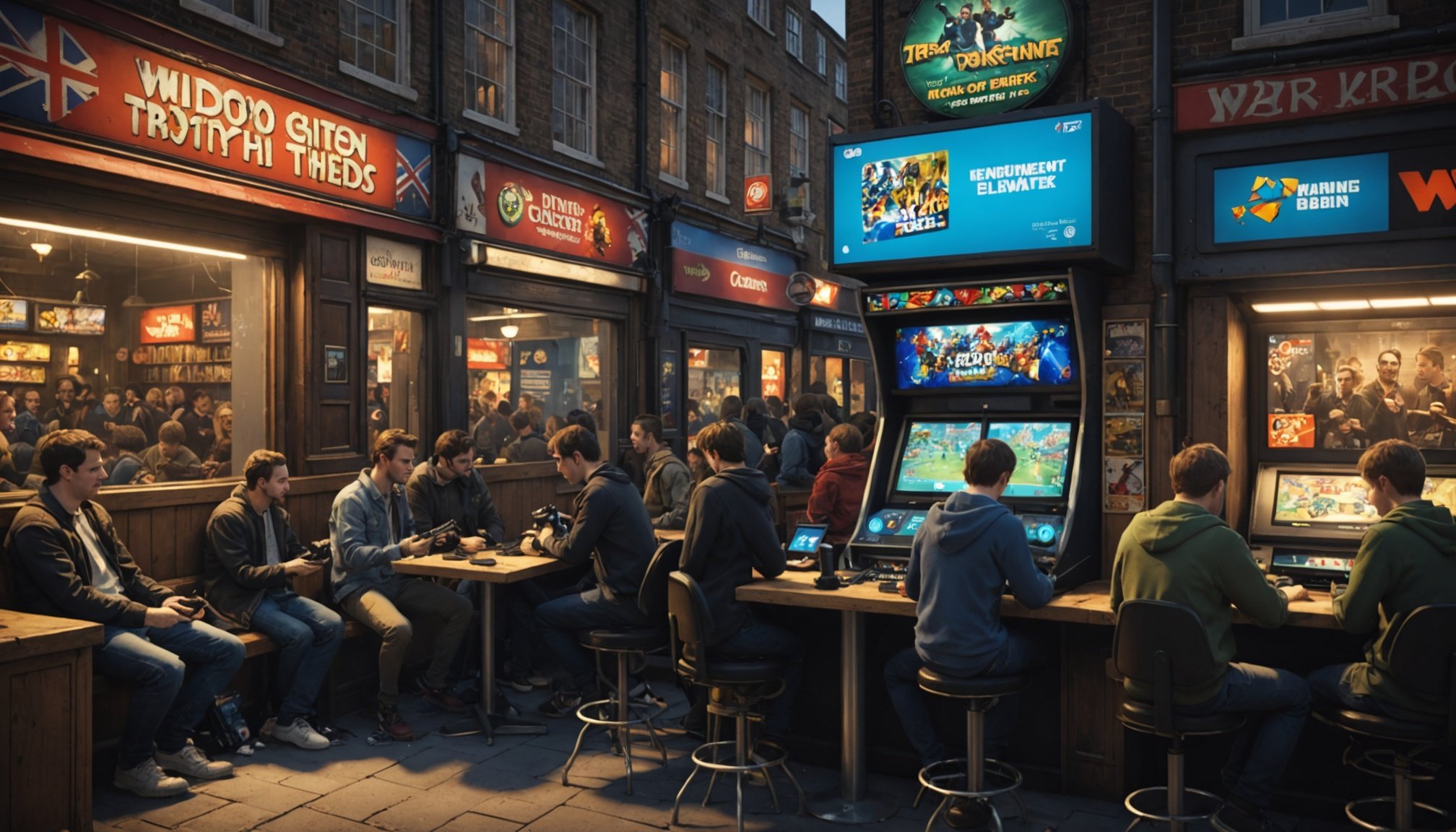Influence on National Identity and Global Perception
The impact of UK video games on national identity is profound. Titles like Tomb Raider and Grand Theft Auto serve not only as entertainment but also as powerful cultural exports. These franchises shape global perception of British culture by showcasing distinct storytelling styles and settings rooted in the UK’s heritage and urban landscapes.
Domestic audiences find pride in these games, which reflect aspects of British life, history, and social commentary. Internationally, the recognition of these games helps solidify the UK’s reputation as a hub for innovation and creativity in digital media. Tomb Raider, for instance, combines British archeology themes with global adventure, while Grand Theft Auto offers satirical looks at modern urban society, which resonates worldwide.
Also to see : How do UK video games influence social interaction?
By blending immersive gameplay with culturally rich narratives, UK video games contribute significantly to how Britain is understood across borders. As cultural exports, they are both ambassadors and mirrors of national identity, influencing perceptions through immersive experiences that extend far beyond traditional media. This dynamic elevates the UK’s cultural presence on the global stage, confirming the importance of video games as contemporary storytelling tools.
Representation and Diversity in UK Video Games
The UK video game industry has increasingly prioritized representation and diversity, reflecting broader societal dynamics. Games developed in the UK often include characters from various backgrounds, ethnicities, gender identities, and abilities, enriching narratives and providing players with more relatable experiences. This focus on inclusion not only serves entertainment but also fosters greater social understanding by challenging stereotypes and promoting empathy.
Also read : How Do Video Games Influence Computer Literacy in the UK?
However, while the presence of diverse characters is more visible, critiques highlight the need for deeper, authentic representation beyond tokenism. Developers strive to create inclusive storylines that reflect real-world complexities, acknowledging past shortcomings. Moreover, the UK video game industry continues to advance initiatives encouraging underrepresented groups’ participation both as creators and protagonists in games.
This progress underscores how diversity in UK video games plays a crucial role in shaping cultural perceptions and expanding acceptance. It remains a key topic in discussions on the industry’s cultural impact and ethical responsibility. For those interested in exploring how inclusion shapes game development, industry reports and studies provide valuable insights into ongoing efforts.
Social Behaviors and Community Formation
The rise of video game communities centered on UK-made titles has reshaped social interaction among players. These communities often foster strong bonds through shared goals and experiences, especially in games emphasizing co-operative and online play. Members develop teamwork and communication skills as they collaborate to overcome challenges, which can positively influence relationships in UK society.
However, while many players benefit from the camaraderie and support these communities offer, concerns about anti-social behaviour persist. Some online interactions reveal toxicity or exclusion, which can impact players’ social experiences negatively. Understanding this dual nature is crucial in assessing the role of gaming in shaping social skills and wider community dynamics.
Moreover, developers are increasingly aware of these effects, implementing systems to encourage positive interaction and discourage harmful behaviour. This approach helps strengthen inclusive environments within the gaming sphere, encouraging more respectful and constructive social interaction throughout UK society. In this way, video game communities not only entertain but also contribute to evolving social landscapes.
Economic and Creative Industry Contributions
Exploring the symbiotic growth of video games and creativity in the UK
The UK video games sector plays a vital role in creative industries, driving innovation and collaboration across multiple fields. By merging technology with artistic talent, it fuels advances that ripple through film, music, and other media sectors. This cross-industry synergy enhances creative outputs and opens fresh avenues for storytelling and immersive experiences.
Economically, the UK video games sector is a powerhouse. It generates substantial revenue and has become a significant source of job creation, offering diverse roles ranging from programming to graphic design. The sector’s growth attracts investment, fostering startup culture and sustaining established companies alike. Its impact extends beyond direct employment, stimulating ancillary services such as marketing and software development within the broader creative industries.
Innovation in game design also propels technological progress. Techniques developed for video games often inform visual effects in film and sound design in music production. These overlapping influences underscore the sector’s status as a hub of creative and economic vitality, reinforcing the UK’s position as a global leader in the creative industries.
Societal Themes and Educational Value
Video games set in the UK often weave societal themes and historical elements into their narratives. Through immersive storytelling, players encounter British cultural traditions, social dynamics, and pivotal moments in history, enhancing their understanding of UK culture. These contextual backdrops make the gaming experience not just entertaining but also educational.
Such games function as powerful educational tools, promoting cultural literacy by introducing players to complex societal issues in an accessible format. This engagement fosters critical thinking about social structures and encourages players to reflect on real-world ethical dilemmas mirrored within gameplay.
Moreover, UK video games frequently act as catalysts for broader discussions about society and values. They challenge players to consider diverse perspectives on class, identity, and community, helping develop empathy and social awareness. For educators, integrating these games into curricula provides a dynamic method to explore British history alongside contemporary social questions.
By combining entertainment with educational content, video games contribute meaningfully to cultural discourse, proving their value beyond mere pastimes.
Understanding Battery Life in Robot Hoovers
Battery life is a crucial factor that directly impacts the efficiency and convenience of robot hoovers. Typically, these devices feature lithium-ion batteries, known for their long-lasting performance and relatively quick recharge times. On average, high-quality robot hoovers offer battery life ranging from 60 to 120 minutes, allowing them to clean sizeable floor areas on a single charge.
When considering battery life, it’s important to assess the robot hoover’s runtime versus charging time. Some models include “auto-docking” capabilities, where the vacuum automatically returns to its charging station once the battery is low, often resuming the cleaning cycle after recharging. This feature ensures thorough cleaning without user intervention.
Battery capacity affects not only runtime but also suction power. As the battery depletes, some robot hoovers may experience a reduction in cleaning effectiveness. Therefore, choosing a model with a robust battery and efficient energy management is key for sustained performance.
Advancements in robot hoover technology are constantly improving battery efficiency, enabling longer cleaning sessions and faster recharge speeds. Understanding these aspects enables buyers to select a vacuum that meets their specific needs, balancing cleaning duration with convenience.








